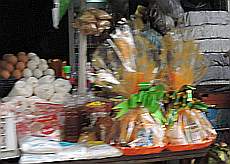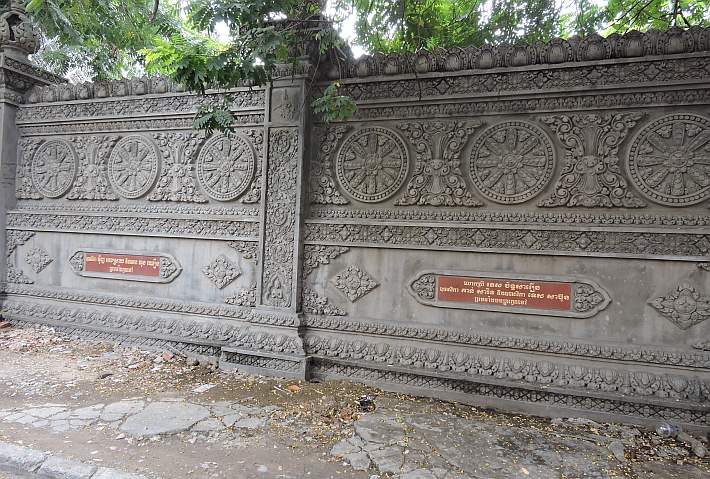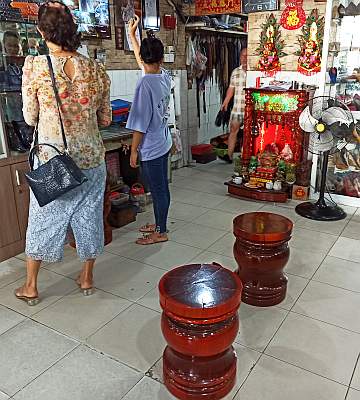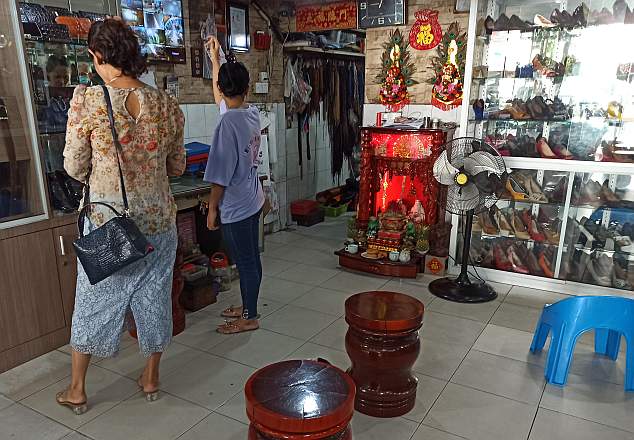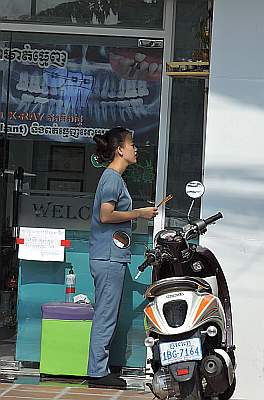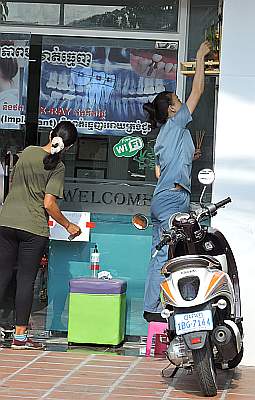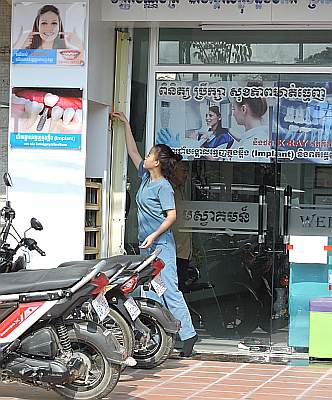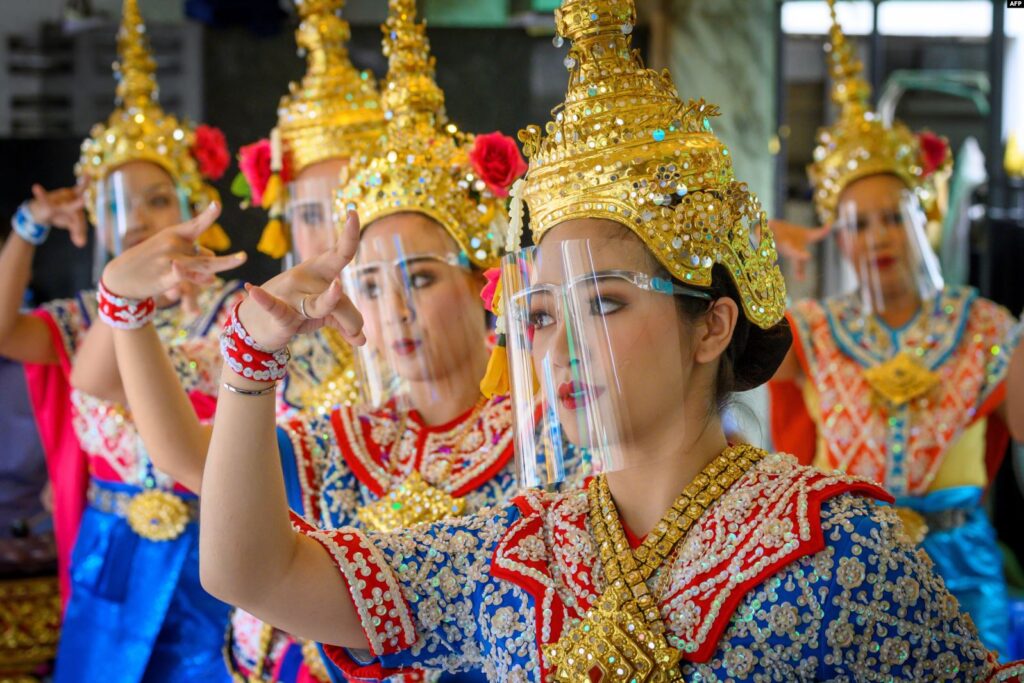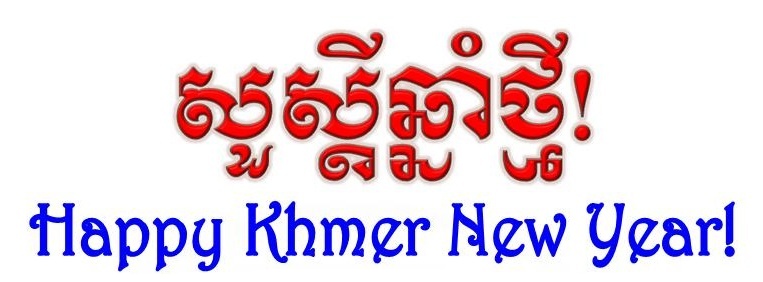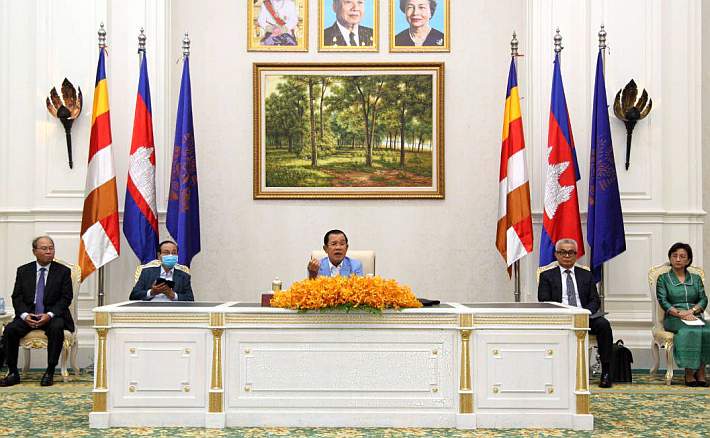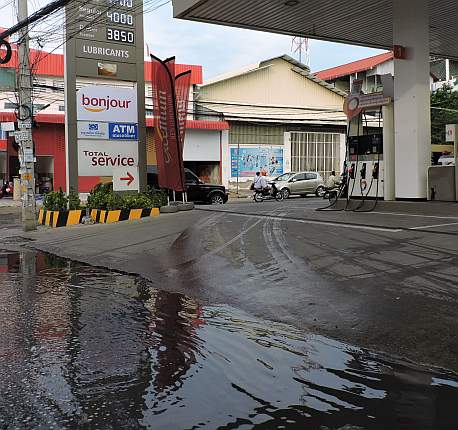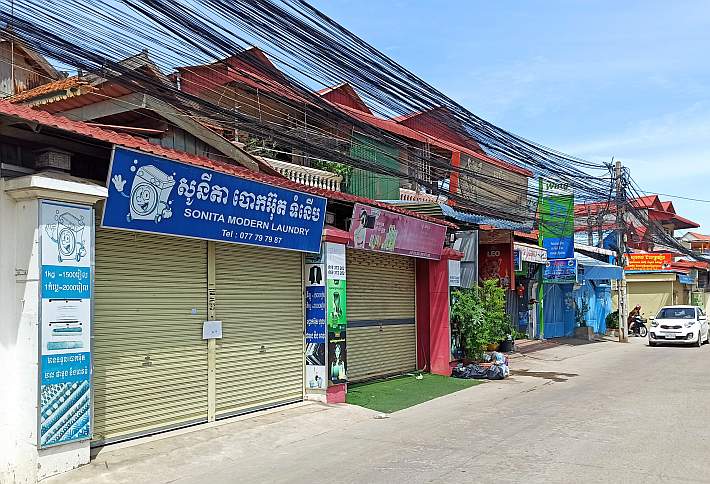
Today is the second day of the three-day Pchum Ben Buddhist holiday honoring the spirits of deceased relatives. For Pchum Ben, everyone must go to their home village in the provinces so that Phnom Penh is largely empty as evidenced by this row of closed shops a long a normally VERY busy road. The resultant minimal traffic makes it wonderful for me getting around on my bicycle.
